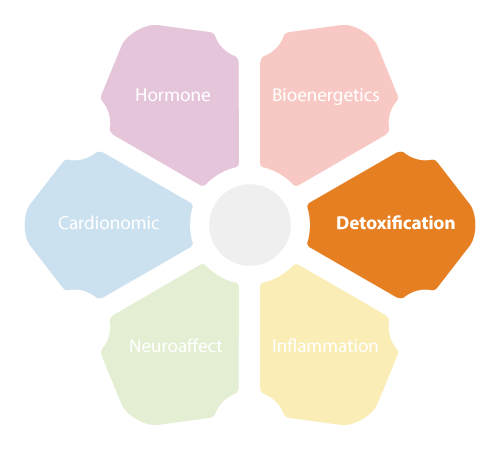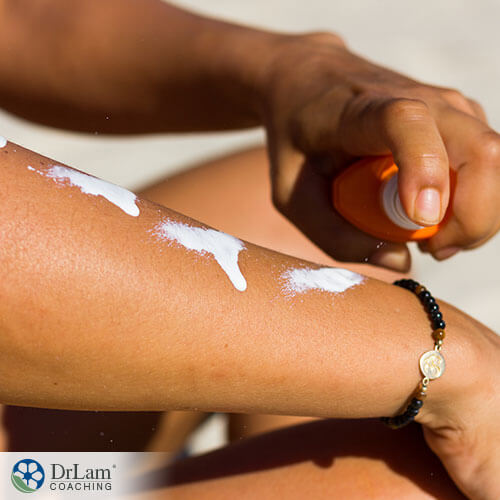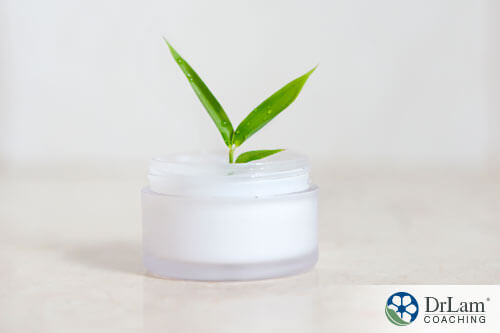At some point in your life, you may have become aware of the health risks associated with sun exposure. This is especially true if you enjoy spending a lot of time outdoors. Many of us have already decided to protect ourselves by using sunscreen. However, your regular store-bought sunscreen may end up harming your body instead of protecting it. Instead, you need a safer way to protect your skin.
Sunscreen is often touted as a safe way to protect yourself from sunburns and skin cancer, and if you are out in the sun for a long time, it is definitely important to make sure you aren’t frying your skin. However, if you apply sunscreen properly, for it to be effective, you need to slather large amounts on your skin over and over, sometimes several times an hour. And with the toxins present in some sunscreens, this can end up doing more harm than good.
Overloading your body can disrupt the body’s NeuroEndoMetabolic (NEM) Stress Response system, the system responsible for ensuring that the body can cope with stress in a healthy manner. This is made of six circuits of different organs and systems that work to deliver the fight or flight response to stress.
 Among these circuits is the detoxification circuit. This is made up of the immune system, kidneys, liver, lymphatic system, and extracellular matrix. Together, these organs and systems ensure that any harmful toxins or pathogens are cleared out of the body before they start to do serious harm.
Among these circuits is the detoxification circuit. This is made up of the immune system, kidneys, liver, lymphatic system, and extracellular matrix. Together, these organs and systems ensure that any harmful toxins or pathogens are cleared out of the body before they start to do serious harm.
Typically, all the body systems involved in the NEM stress response return to normal function once the stress has passed. However, when the body functions involved in stress response become overworked, there is a tendency for the NEM stress response to become compromised and start functioning poorly. Alarmingly, the use of sunblock can trigger this dysfunction in two ways: by causing vitamin deficiency and containing toxins.
The main way sunblock can harm the body is through containing several harsh chemicals. These can be absorbed through the skin and create serious health problems. Some of these dangerous chemicals include:
Another problem with overusing sunblock is that it can contribute to vitamin D deficiency. Typically, the body produces this vitamin when you get enough exposure to the sun’s rays. However, sunblock products are designed to block the UV rays your body needs to produce vitamin D. One study in the American Osteopathic Association journal found that sunblock can reduce the body’s vitamin D3 production by as much as 99 percent.
This can worsen a deficiency that is already present in the majority of the population. Vitamin D is not retained long in the body, meaning you need a new supply regularly. And low levels can lead to a host of health problems including cognitive impairments, asthma, death from heart disease, diabetes, cancer, high blood pressure, multiple sclerosis, and more.
 By inadvertently causing vitamin D deficiency or too many toxins in the body, the use of sunblock essentially triggers stress. A study in Australia found that vitamin D deficiency in adult mice tended to reduce their resilience to social stress. And with the body dealing with both internal and external stress, its NEM stress response eventually becomes overworked.
By inadvertently causing vitamin D deficiency or too many toxins in the body, the use of sunblock essentially triggers stress. A study in Australia found that vitamin D deficiency in adult mice tended to reduce their resilience to social stress. And with the body dealing with both internal and external stress, its NEM stress response eventually becomes overworked.
If you already have health problems, putting toxins on your skin or dealing with vitamin deficiencies can overtax an already weakened system, putting added burdens on your detoxification system. These added toxins trigger an inflammatory response. And when this happens, the adrenal glands in the hormonal circuit respond by producing more cortisol. This is the body’s primary stress hormone that is also responsible for neutralizing inflammation in the body.
As the stress continues, however, the adrenals soon become unable to meet the body’s demands for cortisol. This leads to significant hormonal imbalance and Adrenal Fatigue Syndrome (AFS).
However, just because sunscreen can be dangerous, that does not mean it is safe to spend all day in the sun unprotected and burn yourself to a crisp. What you need is a healthier way to enjoy your time in the great outdoors.
As you can see, using large amounts of sunscreen may be harmful to your overall health in the long run. However, using the right sunscreen in the right ways, in moderation, and as a last resort, can be just what your body needs to stay healthy and enjoy the great outdoors. These tips can help you protect your skin from the sun while keeping it healthy at the same time.
The majority of people spend most of their time indoors. This ensures that their sun exposure is kept to a minimum. And if this is the case, you don’t need sunblock if you will just be exposed to the sun momentarily while you cross the street.
 If you think you are going to be exposed to the sun’s rays, protect yourself by using the shade. You can also use hats, light long sleeves and pants, and umbrellas to protect your skin. This helps stop excessive sun exposure without requiring you to put anything on your skin.
If you think you are going to be exposed to the sun’s rays, protect yourself by using the shade. You can also use hats, light long sleeves and pants, and umbrellas to protect your skin. This helps stop excessive sun exposure without requiring you to put anything on your skin.
To ensure vitamin D deficiency isn’t a problem for you, make sure you are getting enough through supplements or food. This way you can focus on protecting your skin and enjoying time outside, without worrying it will leave you lacking in essential vitamins.
If you do think you are going to need sunblock, make sure you use an all-natural product and research the ingredients. Some of these products contain antioxidant oils that can help prevent oxidative stress from wreaking havoc in your body.
If you enjoy staying outdoors and you want to protect your skin from excessive sun exposure with sunscreen, one of the best ways to ensure your sunblock is free of dangerous chemicals is to make it yourself.
Before you make this, however, if you do have adrenal fatigue or are at high risk for skin cancer or tend to burn very easily, it may be best to consult with your physician and/or qualified healthcare practitioner. Your doctor may be able to point you towards the best natural sunscreens available for your body, while helping you avoid any ingredients you are sensitive to.
That said, here is a recipe for an adrenal friendly sunscreen:

© Copyright 2020 Michael Lam, M.D. All Rights Reserved.
When you use regular store-bought sunscreen, you are exposing yourself to a lot of harsh chemicals that can be absorbed into your skin or breakdown into free radicals or carcinogens. You also get less vitamin D, which may lead to deficiency. Both situations add stress to your body.
